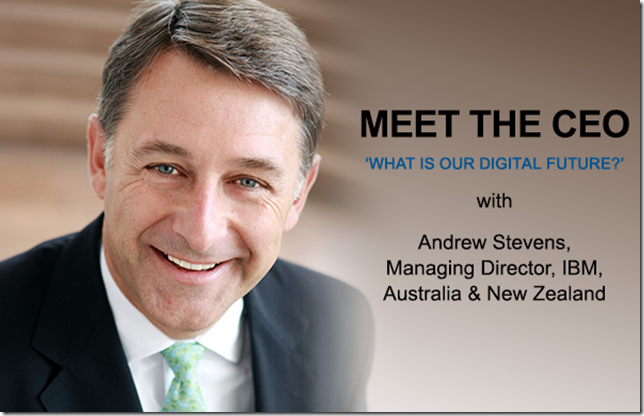Feeling incompetent with Jules Goddard
The AGSM have really cranked their game up this year. Lot’s of events – networking evenings, Learn@Lunch (basically you show up with your lunch and listen to / discuss a topical management issue with a senior academic), Meet The CEO and various other learning / socialising opportunities.
So when the invite for their most recent evening event called “The Core Incompetence of the Corporation: Where and Why Things Go Wrong in Business” presented by Dr Jules Goddard showed up in my inbox, it was definitely worth delaying dinner for. Dr. Goddard is a current Fellow of London Business School and AGSM Unilever Distinguished Visitor, and an altogether entertaining and thought-provoking speaker.

Geeky academic digression:
The name of the presentation is a play on “The Core Competence of the Corporation” the game-changing and popular 1990 Harvard Business Review article by the late C.K. Prahalad and Gary Hamel, which broadly posits that organisations need to develop and focus on their core competencies – the things that they do really well and potentially uniquely – to build and maintain a sustained competitive advantage.
The basis of Dr. Goddard’s presentation was his recent book Uncommon Sense, Common Nonsense: Why some organisations consistently outperform others, which challenges most (all?) of the current popular organisational management theories. The key proposition of the book and the presentation was that incompetence is easier to articulate than competence, and therefore a better mechanism to learn from. Rather than accepting that there is a correct way of doing things, Dr. Goddard suggests that we should recognize that this is a manifestation of a systemic error or bias in most current management thinking.
I won’t outline the whole lecture because it’s probably better to read the book for that, but I did take away some interesting ideas:
- Success in business is not a pattern, and therefore impossible to theorize.
- It is also not like cooking, where a formula can be used. It is more like chess, where mastery is gained by studying half-played games and determining how to proceed from there.
- Measure the “spirit of the workforce” rather than some of the usual financial and operational metrics to determine how the organization is placed, and working on making it an extraordinary place where ordinary people can do exceptional things.
Dr Goddard also pulled out some gems from the book that had the booked-out hall laughing out loud:
- Best practice:- the recipe for formulaic sameness
- Operational excellence: doorknob polishing
- Balanced scorecards: the bureaucrats revenge
- Performance targets: insults for the conscientious
- Annual budgets: the pathology of under-ambition
- Financial incentives: bribes for loners and cynics
- Organisational alignments: the fear of diversity
- Shared values: the extinction of individualism
- Professional standards: box-ticking for the risk-averse
- Charismatic leadership: narcissism unbound
All-in-all, it was a very engaging and provocative session, and it’s clear why Dr Goddard is highly regarded as an authoritative international management strategist and thinker. As my friend George Powell commented while we were leaving – for someone who is so anti-establishment, he sure is well read on the establishment.
I’m looking forward to reading the book (and might post a review if I get the time). Thanks AGSM, and well done on hosting Dr. Goddard and providing the opportunity to hear his ideas firsthand.
The audio recording of the presentation can be found at https://soundcloud.com/asbunsw/jules-goddard-presentation.

